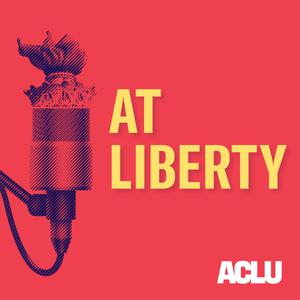Special Edition: What We're Seeing at Campus Anti-War Protests
On April 17, students at Columbia University set up an encampment to show support for Palestinians and demand the university divest from its business related to or within Israel as a means of anti-war protest. In the weeks since its inception, the protest movement has spread, with encampments set up on over 100 college and university campuses worldwide.
But as these protests continue, we’ve watched university leadership and campus and local law enforcement meet these demonstrations with a disturbing response. In the last several weeks, over 2,000 people have been arrested or detained on campuses across the country. Students and faculty have faced arrest, criminal charges, suspensions, and excessive use of force from police. This comes alongside the ongoing threats to and in some cases, the complete suspension of chapters of pro-Palestinian organizations like Students for Justice in Palestine and Jewish Voice for Peace on campuses nationwide.
Universities have long been a site of protest, particularly anti-war protest, and a safe space for students, faculty, and staff to freely express themselves in the exchange of ideas. As these protests continue, our ACLU affiliates are keeping a pulse on campus demonstrations, advocating for students’ rights, and keeping universities accountable when they act with disproportionate and inequitable discipline. So on this episode of At Liberty, we’re bringing you dispatches from affiliate staff: Veronica Salama, staff attorney at the New York Civil Liberties Union, Carol Rose, executive director of the ACLU of Massachusetts, and Ramis Wadood, staff attorney at the ACLU of Michigan. You’ll also hear from Jenn Rolnick Borchetta, Deputy Project Director on Policing in the Criminal Law Reform Project at ACLU National. They’ll share what they’re seeing on the ground and the legal concern and action being taken at this time. Together, we can pave a way forward that protects activism at our nation’s academic institutions and beyond.
To learn more about the ACLU's response to the rise in anti-war student protests and the increased police presence on college campuses nationwide, check out these resources:
https://www.aclu.org/press-releases/aclu-urges-college-and-university-leaders-to-protect-free-speech-and-academic-freedom
https://www.aclu.org/know-your-rights/protesters-rights
https://www.aclu.org/know-your-rights/students-rights
https://www.nyclu.org/resources/know-your-rights/know-your-rights-students-higher-education-first-amendment#resources
Are you concerned that your civil rights have been violated at a protest? Visit the website of your ACLU affiliate to access forms to file a complaint: https://www.aclu.org/affiliates
8 May 2024, 7:00 am
